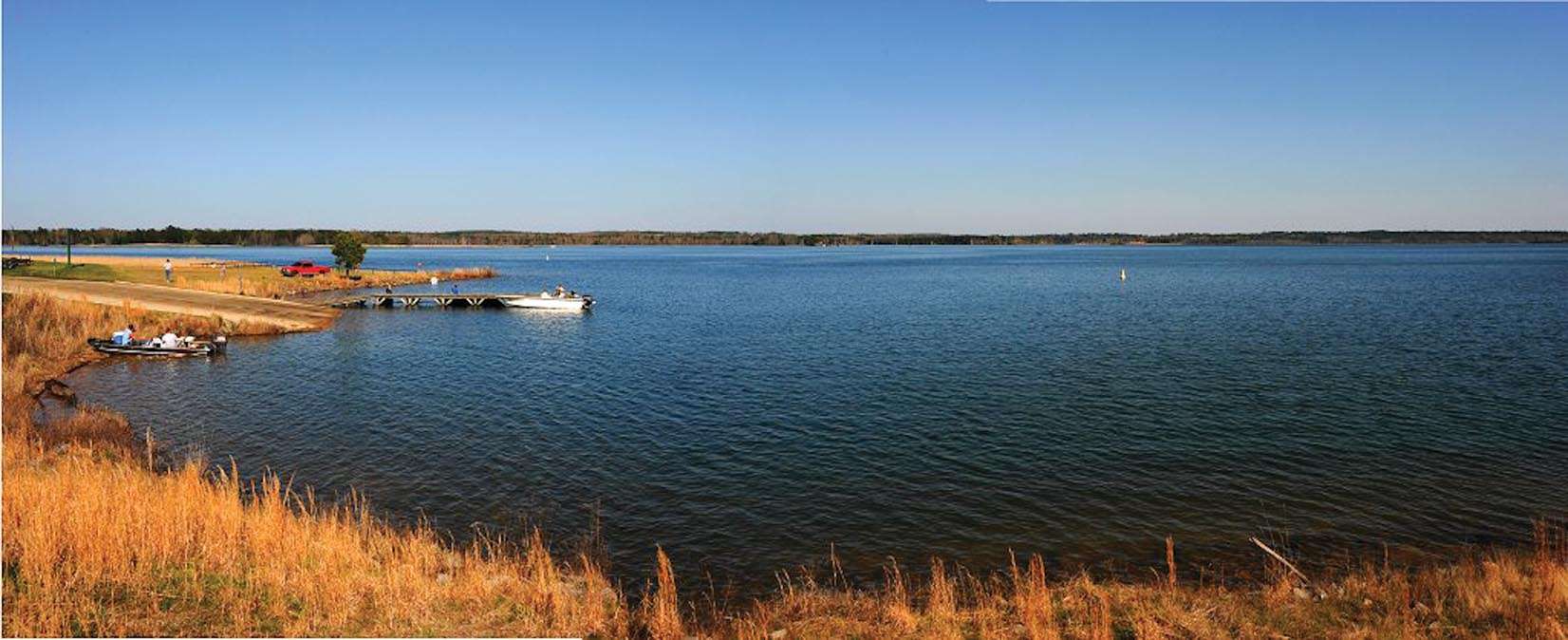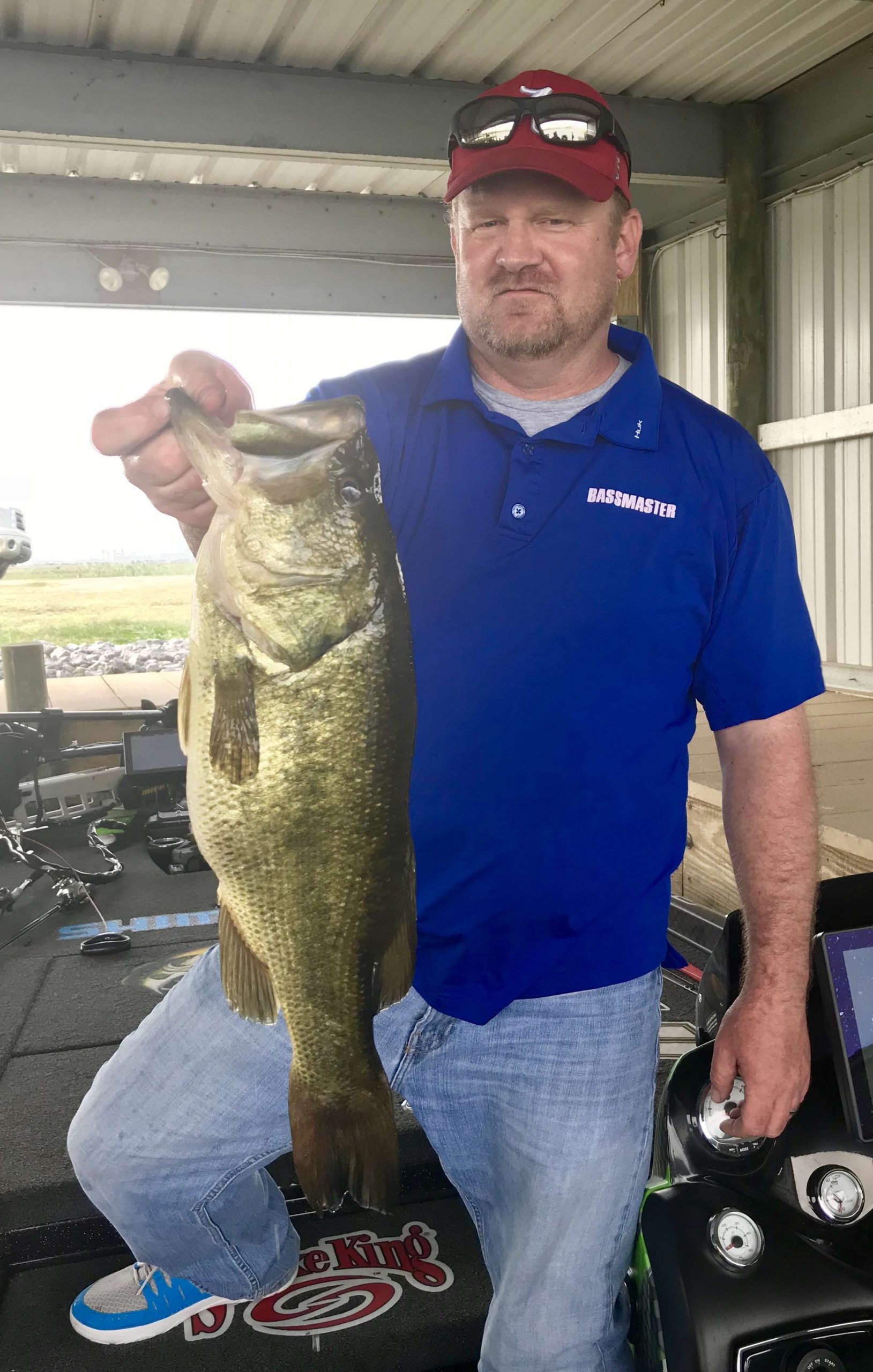
If you’ve reached this point in the magazine (Bassmaster Magazine July/August 2024), reading carefully along the way, you’ve no doubt perused the annual 100 Best Bass Lakes list. One name that’s missing from the list is Lake Monticello. But stay tuned.
Remember the name of the lake and remember the term “Titan Bass.”
Monticello, a tiny, 1,520-acre fishery in southeast Arkansas, was once a budding national power on the bass-fishing scene. It was producing bass in the 12- and 13-pound range, and the parking lots at local boat ramps were filled with truck tags from all over the United States. But then a perfect storm happened — and not the good kind.
First, that fishing pressure took its toll quickly on such a small place, especially during the early spring months when the sight fishing for bedding bass was some of the best in the nation. Then the fishery, which opened in 1997, hit the same “new-lake roadblock” that many lakes hit in their 30s when natural nutrients begin to lag.
Then came the ultimate kick in the teeth when the dam malfunctioned, the lake was drained and the fishery became a complete do-over.
But what could have been the end of Monticello has actually sparked a bright, new beginning. That’s where Titan Bass come in.
A creation of Red Hills Fishery, a private hatchery in Boston, Ga., Titans are Florida largemouth that have been identified as the best of the best. They haven’t been genetically altered, but scientists have worked hard to identify the genetic markers of the fish that are most likely to grow biggest and fastest.
“Think of it in basketball terms,” said Jeremy Risley of the Arkansas Game and Fish Commission. “College basketball players are fantastic, but only a certain a few of those will make it to the NBA. Even fewer will be All-Stars in the NBA.
“Red Hills is trying to take progeny from fish that have those markers and are born from bass of at least 8 pounds or better.”
Titan Bass. The term rolls off your tongue before you know the story and gives you goosebumps once you do.
And where these fish are headed, if they’d take me, I might go with them.
While Monticello was down, AGFC officials worked hard to make it a paradise once it started filling again. They limed the bottom to make the water react better to fertilizer. They built brushpiles and dropped laydowns. But most of all, they created an absolute forage bonanza.
Where most lake/pond owners stock forage like threadfin shad and bluegill at a rate of 10/1, forage at Monticello has been stocked at a rate of 55/1. As a result, Florida largemouth stocked into the lake — not Titan Bass yet — have already reached 18 inches and are pushing 4 pounds in just two years.
The lake is technically open for fishing, but mandatory catch and release is in place, and the city of Monticello is keeping several ramps closed until the lake is completely full. But we should stick the “can’t-miss” label on it right now and ticket it for this 100 Best Bass Lakes list someday soon.
That said, know that strict regulations will be in place. Selective harvest is likely to be encouraged, but catch and release of those big trophies will be the wise and sporting thing to do.
This is a cool story, and I’d like to still be writing it years from now.

